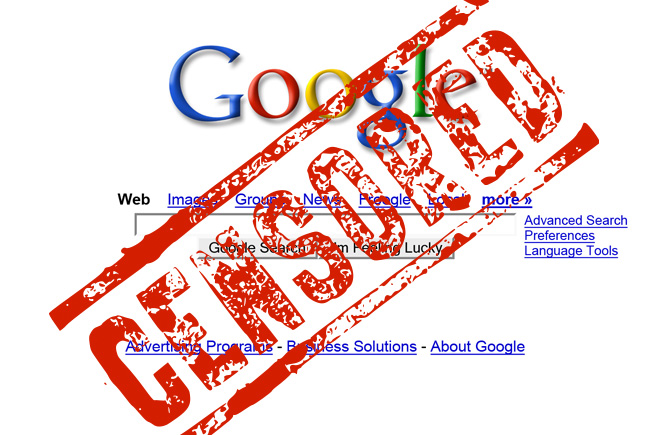
For those who are not too politically savvy in this day and age of information, technology and the phenomenon of “social networking”, there is now a piece of legislation (law or process of making into law) that is now underway in Congress called the PROTECT IP Act of 2011.
PROTECT IP stands for Preventing Real Online Threats to Economic Creativity and Theft of Intellectual Property Act. This act was first introduced last May by Democratic Senator of Vermont, Patrick Leahy in response to an issue he found relevant in our society today: the issue of the internet’s capability to diminish our economy by it’s ability to be an open source for information, such as file sharing.
This is an initiative that seeks to counteract the hindrance to the entertainment industry and businesses that have suffered due to the internet’s capability to make everything, essentially, free.
Now the question is, which side do we go on?
Some of the supporters of this act are:
NBC Universal, Nike, L’Oreal, Rosetta Stone, Ford, Revlon, NBA, Viacom, National Cable & Telecommunications Association, the Independent Film & Television Alliance, the National Association of Theater Owners, the Motion Picture Association of America, the Directors Guild of America, the American Federation of Musicians
Those that are in opposition of this act are:
Yahoo!, eBay, American Express, Google, LinkedIn, Twitter, Foursquare
What’s interesting about these two lists of supporters and opposing organizations is the time in which these organizations and companies were conceived. Supporters such as NBC, Universal, Nike, Ford and the National Cable & Telecommunications Association were conceived, respectively, in 1926, 1934, 1964, 1903 and 1952. Organizations in opposition to this act such as Yahoo!, eBay, Google, LinkedIn and Twitter were conceived, respectively, in 1994, 1995, 1998, 2003, 2006.
What does this say?
Simply, the younger generation of companies believe in an open source, public and free release of information – and the older generation of companies believe in the more traditional routes of containing information: for private benefit, control of information and security. Now which one is right? Which one is wrong? Does right and wrong even mean anything in this situation? Which route does it seem like our society is leaning more towards? Is the open source of information inevitable in this new age we are heading into?
Well, it really doesn’t help to loosen the bias by seeing powerhouse companies of the world in opposition to this bill, which include Google, Twitter and the growing power of LinkedIn. What this shows is that it could be inevitable that this new age of technology and internet our younger generations have been accustomed to has opened up a new sense of consciousness in our minds, and that new “consciousness” is our willingness to sacrifice self-benefit for the benefit of all.
The younger generations’ urgency to share content and socially network has globalized our minds to the great extents of the globe, expanding the extent of our knowledge, resulting in an accumulation of information that further surpasses what our parents or grandparents had experienced. Imagine how much dumber we would be without the curiosity quencher of Wikipedia, Google and even YouTube or Facebook.
What’s sad, yet sweet, is the necessity of social networking in our society today in order to stay synchronized to… well, anything. This includes our friends, family and even coworkers. Social networking and the internet has infiltrated our lives in the realm of daily rituals as well, such as finding places to go eat (Yelp) or looking up the best place to go out for leisure.
The need for social networking and the internet for information is very controversial. I’ve seen people do without Facebook, Yelp or Twitter and are completely fine. If not that, they live an incredibly wholesome lifestyle in comparison to some who live on Facebook and Twitter. But the point is, social networking may have diluted a portion of our social purity and intimacy, but it has also opened us to a larger network of people and to our entire world. Our society alone has reached a new consciousness through the means of online sharing, whether that be social networking or information sharing.
Realistically, are we going to turn back and try to control and secure this massive network of information of the internet? Or are we going to move forward into a new age of true freedom, knowledge and globalization of society?
Ask yourself, which one do you see prevailing?
“The internet censorship bills currently moving through Congress, the Stop Online Piracy Act and the PROTECT IP act, would set a dangerous precedent and represent a big step backwards in Washington’s efforts to foster growth in the digital sector. These bills would have a profound effect on how the internet functions on a basic level, undermining the legal process and overturning long-standing prac…tices established in the Digital Millennium Copyright Act. The fact that Congress is considering these haphazard bills is a cause for alarm. I agree with the goal of combating online piracy, but these pieces of legislation will cause substantial harm to innovation and the economic opportunities created by the Internet in my Silicon Valley District and to the fundamental openness of the internet.” by Congressman Mike Honda
Like Jackfroot, your Asian American Entertainment hub on Facebook.
Follow Jackfroot, your Asian American Entertainment one-stop-shop on Twitter.
Written By Derick Lee | Jackfroot.com | [email protected]
